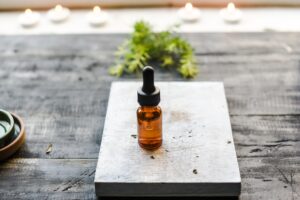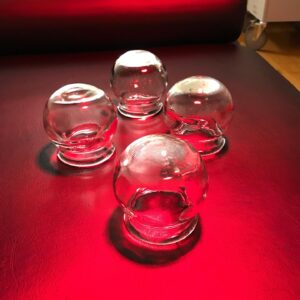
Essential Oils – Do They Actually Work?
Do Essential Oils Actually Work?
For millennia, essential oils have been utilized for their alleged medicinal powers. However, in recent years, they have grown in popularity as a natural cure for a broad variety of health conditions. The use of essential oils is a natural approach to enhancing your health and well-being. They are produced by extracting plant oils and are utilized in aromatherapy, massage, and other natural treatments. Some consumers, however, are skeptical about essential oils, asking whether they are a hoax.
While some evidence exists to support the use of essential oils for certain illnesses, most of it is anecdotal. It is also vital to keep in mind that there is a lot of misinformation out there. Some believe that essential oils can treat anything from cancer (1) to a simple cold (2). Although there is some evidence to support these statements, additional study is needed.
Essential oils tend to have more strong evidence that they may lessen or alleviate symptoms rather than cure genuine illnesses. They may, for example, be used to alleviate stress (3), fight germs, and even assist you in getting a good night’s sleep (4). Some essential oils have medicinal properties, but not all. Even those that do have advantages may not function or be safe for everyone.

When studying the usefulness of essential oils, it is crucial to realize that many studies are conducted on animals rather than humans. In the laboratory, more experiments are carried out. These investigations may provide favorable results in terms of destroying certain bacteria, viruses, or cancer cells. What works in a petri dish or test tube, however, may not function in the body. This is because the environment in the body is substantially different from lab settings and difficult to replicate. When researching whether or not essential oils function, keep in mind if the study was conducted in vitro (which translates as “in glass”) or in vivo (which translates as “in the living”) (5).
This scientific study, published in 2018 (6), is a prime illustration of this. On the bacterium that causes Lyme disease, 35 essential oils were examined. Ten of them were discovered to be more effective than antibiotics. However, these tests were all conducted in a laboratory, and the conclusion notes that more studies should be conducted “in vivo.”
Lyme disease, which is caused by being bitten by an infected tick, is unpleasant and may linger for many weeks. You may be persuaded to try essential oils after seeing the positive findings of the laboratory studies. It may be worth it if it at least alleviates some of the symptoms. However, see your doctor first, particularly if you are currently taking medicine to treat Lyme disease. This is true for any ailment, not just Lyme disease.
Another factor to consider when looking at studies on the effectiveness of essential oils is the size of the cohort involved. In other words, how many persons participated in the research study? This research (7) collected blood from 1,376 patients who had a fungal illness. Cinnamon essential oil and olive oil were discovered to have antibacterial properties. Because of the large number of persons who participated, this is a considerably more trustworthy study. As a result, you may be confident that if you have a fungal infection, cinnamon essential oil will help.
 Still, on the subject of cinnamon essential oil, this research (8) first investigated the oil’s effects on blood sugar in the laboratory. Following a successful test on animals, the researchers subsequently experimented on sixty humans. This leads to the reasonable conclusion that cinnamon oil might help you minimize high blood sugar and the danger of acquiring diabetes.
Still, on the subject of cinnamon essential oil, this research (8) first investigated the oil’s effects on blood sugar in the laboratory. Following a successful test on animals, the researchers subsequently experimented on sixty humans. This leads to the reasonable conclusion that cinnamon oil might help you minimize high blood sugar and the danger of acquiring diabetes.
A meta-analysis review is the finest study to evaluate when determining whether essential oils work or not. This is the gold standard of scientific research, and it often examines and contrasts the findings of multiple scientific investigations (9). For example, this meta-analysis review research (10) investigates the efficacy of lavender essential oil in alleviating anxiety. As a result of the beneficial results, a lavender essential oil is often promoted as a treatment for any symptoms including nervous sensations. Lavender essential oil is beneficial for lowering feelings of sadness (11), producing relaxation, and assisting with sleeplessness due to its relaxing and sedative properties (12).
Many essential oils are mentioned as ingredients in prescription and over-the-counter drugs. You would presume that they would work on their own based on this. This is true of eucalyptus and peppermint (or menthol) oils, which are often used in cough, cold, and congestion treatments like cough syrup and vapour rub. Essential oils like eucalyptus and peppermint may also be breathed when added to a diffuser or heating water. (See the entries on congestion and coughing.)
Having stated that, eucalyptus oil is not safe to consume. Half a teaspoon is enough to kill you. It should also not be applied neatly to the skin since this might cause significant irritation (13). As a result, it is preferable to dilute it with a carrier oil such as jojoba. In fact, most essential oils should be diluted in this manner. Less is unquestionably more.
Tea tree oil is another popular essential oil. Many drugs include it, including those for acne, mouth infections, and fungal diseases including athlete’s foot and herpes. It is also used to prevent dandruff in shampoos. Tea tree oil works so effectively because it destroys the bacteria that cause these diseases. This is supported by a study conducted in Brazil (14). It also claims that tea tree oil (melaleuca) may be useful in the battle against antibiotic-resistant bacteria. This study (15), which employed chickens rather than people, backs up the bactericidal action of tea tree essential oil. However, since the study addresses how tea tree oil may kill germs, it might be assumed that this research is relevant to people as well unless the bacterium is exclusive to chickens.
The sole exception is that tea tree oil should not be consumed internally since it might have dangerous negative effects. The oil may be used straight to the skin, but it is best to test a small amount on your skin first to ensure there are no bad effects. Furthermore, pregnant and nursing women should avoid using this powerful essential oil (16). This is owing to the fact that it may harm the fetus and that not enough study has been conducted on the safety of its usage during pregnancy, particularly due to ethical concerns (17).
Tea tree oil may also be used to treat wounds. Following a successful laboratory experiment, this study was conducted on people (18). When tea tree oil was administered to the wounds of nine of the 10 participants, they healed faster. Despite the fact that the cohort included just 10 participants, the outcome was good.
While essential oils might be useful for specific ailments, it is important to get the advice of a healthcare expert before taking them. Furthermore, do your homework and only buy essential oils from reliable sites.
Without a question, essential oils may be good for your health. However, it’s vital to note that they’re not a panacea. They work best when combined with standard healthy lifestyle habits, as with any natural treatment. So, if you want to enhance your health, don’t depend just on essential oils. Instead, include them in a comprehensive plan that includes a nutritious diet, frequent exercise, and plenty of rest. Having said that, there’s no need to dismiss essential oils totally. They may be an excellent approach to promote your general health and well-being when utilized appropriately.
- Exploitation of Cytotoxicity of Some Essential Oils for Translation in Cancer Therapy https://www.hindawi.com/journals/ecam/2015/397821/
- Essential oils in the treatment of respiratory tract diseases highlighting their role in bacterial infections and their anti-inflammatory action: a review https://onlinelibrary.wiley.com/doi/full/10.1002/ffj.3252
- The Effect of Essential Oils on Work-Related Stress in Intensive Care Unit Nurses https://journals.lww.com/hnpjournal/Abstract/2008/03000/The_Effect_of_Essential_Oils_on_Work_Related.7.aspx
- The therapeutic benefits of essential oils https://www.researchgate.net/profile/Torsten-Bohn/publication/303785286_Nutrition_Well-being_and_Health/links/5756c8b308ae5c654903e4e4/Nutrition-Well-being-and-Health.pdf#page=165
- What is the difference between in vivo and in vitro? https://www.medicalnewstoday.com/articles/in-vivo-vs-in-vitro
- Identification of Essential Oils with Strong Activity against Stationary Phase Borrelia burgdorferi https://www.mdpi.com/2079-6382/7/4/89/htm
- Antifungal Activity of Cinnamon Oil and Olive Oil against Candida Spp. Isolated from Blood Stream Infections https://www.ncbi.nlm.nih.gov/pmc/articles/PMC5028442/
- The glycaemic outcomes of Cinnamon, a review of the experimental evidence and clinical trials https://www.ncbi.nlm.nih.gov/pmc/articles/PMC4609100/
- Systematic review and meta-analysis: A primer https://www.ncbi.nlm.nih.gov/pmc/articles/PMC3474302/
- Effects of lavender on anxiety: A systematic review and meta-analysis https://www.sciencedirect.com/science/article/pii/S0944711319303411
- The effect of aromatherapy with lavender essential oil on sleep quality in patients with major depression https://www.jnmsjournal.org/article.asp?issn=2345-5756;year=2021;volume=8;issue=2;spage=67;epage=73;aulast=Samadi
- Lavender essential oil on postmenopausal women with insomnia: Double-blind randomized trial https://www.sciencedirect.com/science/article/pii/S0965229921000674
- Eucalyptus – Uses, Side Effects, and More https://www.webmd.com/vitamins/ai/ingredientmono-700/eucalyptus
- Melaleuca spp. essential oil and its medical applicability. A Brief Review https://www.bjns.com.br/index.php/BJNS/article/view/89
- Tea tree (Melaleuca alternifolia) and its essential oil: antimicrobial, antioxidant and acaricidal effects in poultry production https://bit.ly/3xE9hVC
- Tea Tree Oil – Uses, Side Effects, and More https://www.webmd.com/vitamins/ai/ingredientmono-113/tea-tree-oil
- Is It Safe to Use Tea Tree Oil While Pregnant? https://www.healthline.com/health/pregnancy/tea-tree-oil-pregnancy
- The Effect of Tea Tree Oil (Melaleuca alternifolia) on Wound Healing Using a Dressing Model https://www.liebertpub.com/doi/abs/10.1089/acm.2012.0787
The post Essential Oils – Do They Actually Work? appeared first on https://gqcentral.co.uk
The post Essential Oils – Do They Actually Work? appeared first on https://alef3.com











